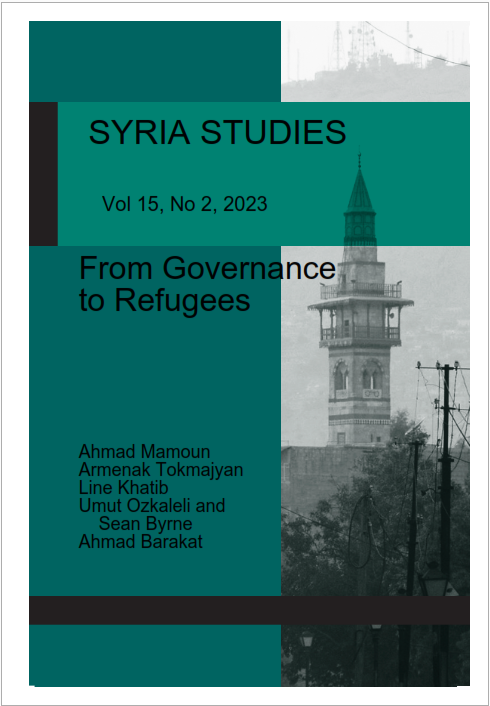Autocracy, Iran and Religious Transformation in Syria
Main Article Content
Abstract
The institutionalization, oversight, and regulation of religion and religious leaders in Syria is not new, rather it has been an ongoing part of the autocratic regimes’ attempts to control the powerful religious realm. But mere regulation, in the form of a mix of co-optation, accommodation and restriction, is no longer enough to achieve this aim in light of the legitimacy crisis of the Bashar al-Asad regime since 2011 and the ensuing Iranian intervention in the country since 2013. These shifts in the political context have prompted the regime and its allies to provoke an historic and symbolic rupture in the country’s religious realm, in an attempt to create and embed new forces and centers of authority and power, to reformulate problems, and to dilute the legacy and feelings of historical entitlement of Syria’s majority, with the ultimate aim of shoring up the regime.
Keywords: Autocracy, Iran, Bashar al-Asad, Ulama, Sunni Islam
Article Details

This work is licensed under a Creative Commons Attribution 4.0 International License.
Authors who publish with this journal agree to the following terms:- Authors retain copyright and grant the journal right of first publication with the work simultaneously licensed under a Creative Commons Attribution License that allows others to share the work with an acknowledgement of the work's authorship and initial publication in this journal.
- Authors are able to enter into separate, additional contractual arrangements for the non-exclusive distribution of the journal's published version of the work (e.g., post it to an institutional repository or publish it in a book), with an acknowledgement of its initial publication in this journal.
- Authors are permitted and encouraged to post their work online (e.g., in institutional repositories or on their website) prior to and during the submission process, as it can lead to productive exchanges, as well as earlier and greater citation of published work (See The Effect of Open Access).
